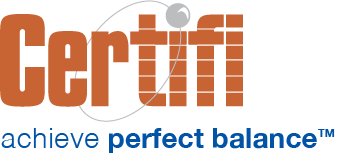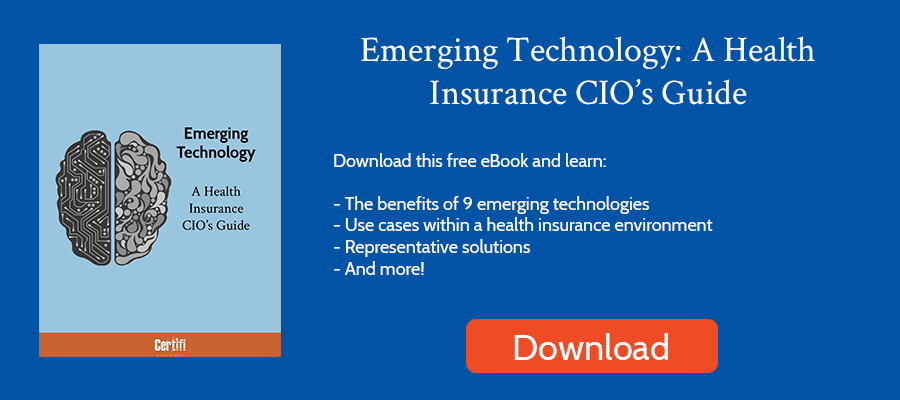Medicare Advantage Star Ratings can significantly impact your bottom line. Higher ratings lead to bonus payments from the federal government and may make health plans more competitive, increasing enrollment. Members are more likely to choose highly-rated plans than lower-rated plans. Increasing Medicare Advantage Star Ratings can be the best strategy for plans seeking revenue growth.
Technology can help improve Star Ratings. Here are five health insurance technology solutions that can increase Medicare Advantage Star Ratings.
Enrollment and Eligibility Tools
Poor enrollment data often leads to downstream issues – like inaccurate billing or poor clinical experiences. Additionally, poor Medicare Advantage enrollment experiences can lead to complaints that impact Star Ratings and ultimately lead to member churn.
Seek solutions with strong integration capabilities. Your enrollment solution needs to integrate with CMS on the backend to improve data exchange. A front-end enrollment portal streamlines the initial enrollment. An interface with downstream systems – like your core administration platform or premium billing solution – may also be required.
Broker Commission/Sales CRM
If your Medicare Advantage sales strategy includes a broker component, consider software to streamline managing and paying brokers. A broker management portal – including educational materials brokers can use to understand your plans and commission structures – improves the broker relationship. Also, consider a tool that will calculate and remit broker commissions if your premium billing solution lacks that functionality.
If you leverage an internal sales team, consider a sales customer relationship management (CRM) solution to track and manage Medicare Advantage pipelines.
Broker management and CRM tools help you sell better and deliver a better member sales and onboarding experience, which can impact Medicare Advantage measures like members choosing to leave the plan.
Premium Billing and Payment Management
Though many Medicare Advantage beneficiaries have $0 premiums, those that you do bill may introduce complex requirements. Integrating low-income subsidies or late enrollment penalties into a typical premium invoice may be necessary. Due to the low dollar value of Medicare Advantage premiums, software can help automate processes to reduce the cost of premium billing, improving profitability.
Payment methods are also important. Seniors may find a retail cash payment option palatable, improving on-time payment rates. Enabling and promoting recurring payments can also improve on-time payment rates.
Consider artificial intelligence in your billing process as well to streamline time-consuming processes. For example, seniors may combine check payments for multiple beneficiaries. Or, you may receive payments from children or other family members. As a result, Medicare Advantage billing teams may spend more time determining how and where to apply unidentified check payments. Artificial intelligence – like that used by Certifi – can help save time applying those payments to the appropriate account.
Premium billing software saves administrative time while avoiding misapplied payments and other billing processes leading to member dissatisfaction and churn.
Population Health Management
Many Star Rating measures relate to treating and managing specific medical conditions or health screenings. For example, breast cancer screenings, colorectal cancer screenings, and annual flu vaccine uptake are individual measures used to determine an overall Star Rating.
Your population health management solution can help you identify members requiring outreach and find care gaps that can lead to poor Star Rating scores. Embedded quality analytic tools should align with Medicare Advantage Star Ratings, showing a real-time view of your progress. The solution should integrate with electronic health records and other data sources to deliver predictive analytics and workflows that help you manage your members and improve Star Rating measures.
Appeals and Grievances
Appeals and grievances also impact your Medicare Advantage Star Rating. Well-defined, technology-enabled processes to manage those appeals and grievances lead to higher Star Ratings.
Individual measures impacted include:
- Getting needed care
- Getting appointments and care quickly,
- Getting needed prescription drugs
- Complains about the health plan
- Timely decisions about appeals
- Reviewing appeals decisions
Tracking and managing appeals and complaints and promptly resolving them can improve your Star Ratings.
Conclusion
Achieving high Medicare Advantage Star Ratings is not just about delivering quality healthcare. It’s about leveraging technology to enhance every aspect of your health insurance operations. Streamlined enrollment and eligibility tools can reduce errors and member churn while efficient broker commission and sales CRM systems improve the sales experience. Premium billing software saves time while ensuring billing accuracy, while population health management tools identify care gaps and improve specific health measures. Well-defined technology-enabled processes for managing appeals and grievances ensure appropriate, timely follow-up.
By embracing technology, health insurance providers can improve their bottom line while delivering better healthcare experiences for their Medicare Advantage members, ultimately driving growth and success in this competitive market.
Certifi’s health insurance premium billing and payment solutions help healthcare Medicare Advantage payers streamline processes to reduce administrative costs.



